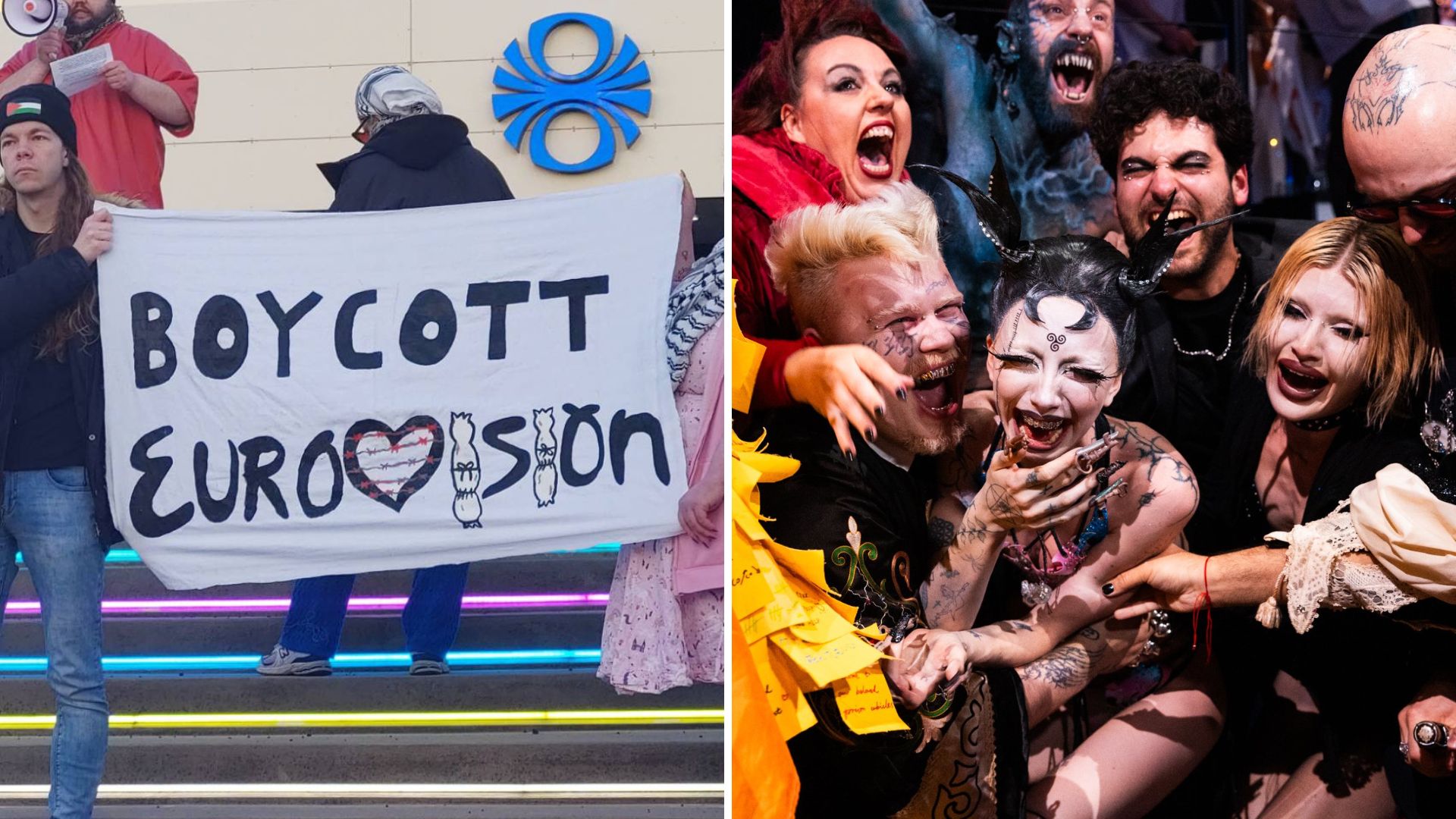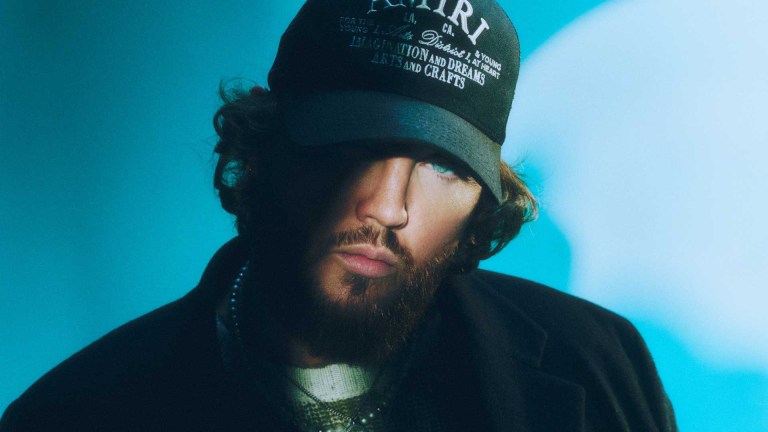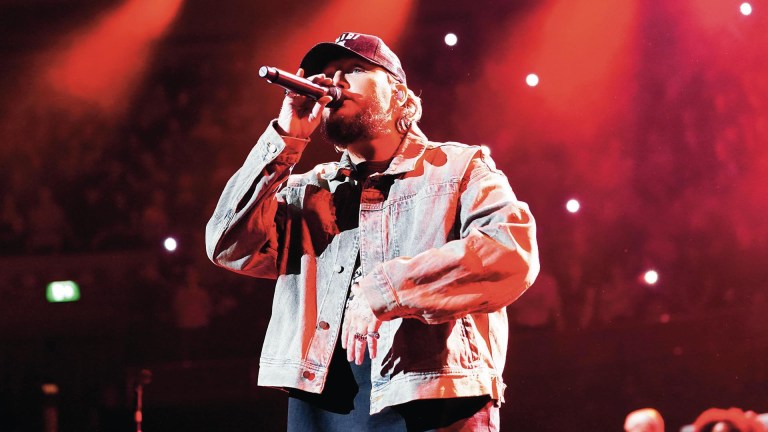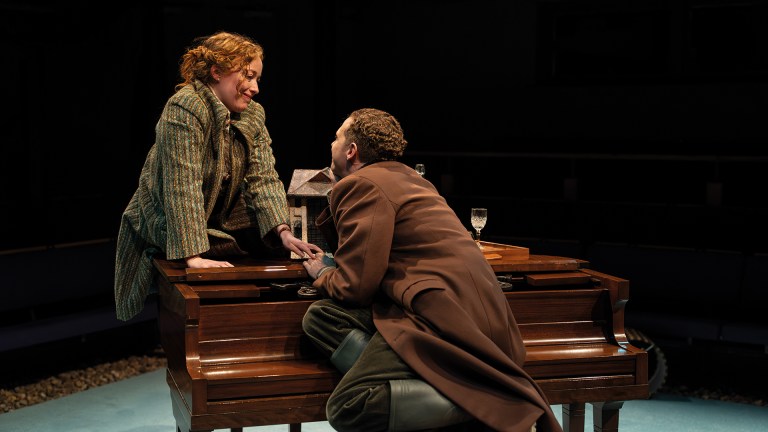According to YouGov polling, some 59% of people think that Israel should be barred from Eurovision, though that drops to 53% among those who are planning on watching. 23% and 30% in these categories think that they should be allowed to compete, while the rest say they don’t know.
Is Eurovision really apolitical?
Established to foster unity between national broadcasters in 1956, Eurovision is officially apolitical. Belarus – Europe’s last dictatorship – was banned in 2021 after submitting a song mocking anti-government protests. And Israel was asked to modify its entry this year, originally entitled October Rain in reference to the Hamas attacks that triggered Israel’s “brutal” ground offensive.
Nonetheless, political tensions have always surfaced in voting patterns and veiled song lyrics.
In 2016, for example, Ukraine performed a song called 1944 about Stalin’s wartime deportation of Tatar people. The performance prompted Russia to accuse the country of turning Eurovision into a “field for political battles”.
Israel’s participation has always been controversial: in 1978, for example, Jordan replaced the Israeli entry with a visual of some flowers. In 2019 – hosted in Tel Aviv – Madonna and Icelandic performers Hatari held up Palestinian flags at different points, though Madonna hoisted an Israeli ensign as well.
This year, the European Broadcasting Union (EBU), which produces Eurovision, has adopted much harsher restrictions. After Tuesday’s semi-final, the organiser rebuked Swedish-Palestinian singer Eric Saade for wearing a keffiyeh, and asked Irish act Bambie Thug to remove messages of solidarity with Palestine from their stage costume.
Advertising helps fund Big Issue’s mission to end poverty
Saade slammed organisers for their reprimand.
“I got that keffiyeh from my dad when I was a little boy, to never forget where the family comes from. Back then, I didn’t know one day be called a ‘political symbol’ by EBU. It’s like calling the Swedish Dala horse a political symbol… In my eyes, it’s just racism,” he said.
“I just wanted to be inclusive and wear something that is authentic to me – but the EBU seems to think my ethnicity is controversial. It says nothing about me, but everything about them.”
Why are people boycotting Eurovision?
The EBU – which banned Russia after its invasion of Ukraine – has faced accusations of “double standards” after it decided against excluding Israel.
Eurovision – which is known for its large queer audience – allows Israel to launder its reputation amid ongoing destruction of Gaza, activists have claimed. According to the Gaza Health Ministry, at least 34,183 people have been killed and 77,084 have been wounded in Israeli attacks.
“Participation in Euorovision is part of Israel’s pinkwashing strategy. Israel knows that its colonial violence against Palestinians is bad for its image, so it dedicates its resources to promoting an image of itself as ‘progressive’ and ‘queer-friendly’ in order to cover up its crimes,” the Palestinian Solidarity UK campaign spokesperson said.
Advertising helps fund Big Issue’s mission to end poverty
Dozens of Eurovision viewing parties – including Eurovision Party London, traditionally the biggest event of its kind in the country – have cancelled events at venues across the UK. And participating artists have been assailed with calls to pull out.
Big Issue is demanding an end to poverty this general election. Will you sign our open letter to party leaders?
Reece Connolly, a queer performer and producer in London, explained they were boycotting Eurovision 2024 over Israel’s inclusion because it “protests the platforming of a regime actively committing genocide”.
“You have to do whatever you can, however small or inconsequential it might seem,” they said. “This is one of those moments.”
“Our LGBTQ+ venues, for example, shouldn’t be screening these events – they’re more than dance floors and drag shows, they’re fundamental voices in our community. What they do and choose to promote and profit from matters.
“This is one of many, many things we should be doing right now to show our support for Palestine, and how we will not look away.”
Advertising helps fund Big Issue’s mission to end poverty
In a letter to British entry Olly Alexander, UK-based Queers for Palestine urged him to boycott the contest
“We share the vision of queer joy and abundance you’ve offered through your music, and share your belief in collective liberation for all,” the letter reads. “In this spirit, we ask you to heed the Palestinian call to withdraw from Eurovision… There can be no party with a state committing apartheid and genocide.”
Why are fans watching Eurovision despite the boycott?
But not everyone is boycotting. Olly Alexander himself has defended his decision to take part in the competition, saying he “stands for peace” but believes in the “unifying power of music”.
For its part, the EBU has explicitly rejected comparisons between Israel and Russia – and pointed out that the contest is a competition between public service broadcasters, not governments.
“Our governing bodies … did review the participants list for the 2024 contest and agreed that the Israeli public broadcaster Kan met all the competition rules for this year and can participate, as it has for the past 50 years,” chair of EBU Noel Curran said.
He added it was not the EBU’s place to make comparisons between wars.
Advertising helps fund Big Issue’s mission to end poverty
“In the case of Russia, the Russian broadcasters themselves were suspended from the EBU due to their persistent breaches of membership obligations and the violation of public service values,” he said.
Protests are expected around the Swedish arena – but millions are still expected to tune in. Eurovision super-fan and researcher Dr Paul Jordan is one of them.
“I don’t think [calls for a boycott] have overshadowed it – the event will still be joyous and about unity,” he told the Big Issue. “It’s a tricky situation but Eurovision is about uniting people and I don’t see how a boycott will have any impact. Israel is just one of many countries participating, it isn’t taking place in Israel. Boycotts are not in the spirit of the event.”
It’s not the first time that the event has been the source of political commentary, he said.
“We have had politically tense contests before though – in 2012 it took place in Azerbaijan, which brought up huge issues concerning freedom of expression,” he said.
Nonetheless, the queer coalition for Palestine said that the boycott movement is “growing by the day.”
Advertising helps fund Big Issue’s mission to end poverty
“We won’t stand by as the cherished song contest allows itself to be used for artwashing,” said Palestinian activist Ghadir Shafie.










